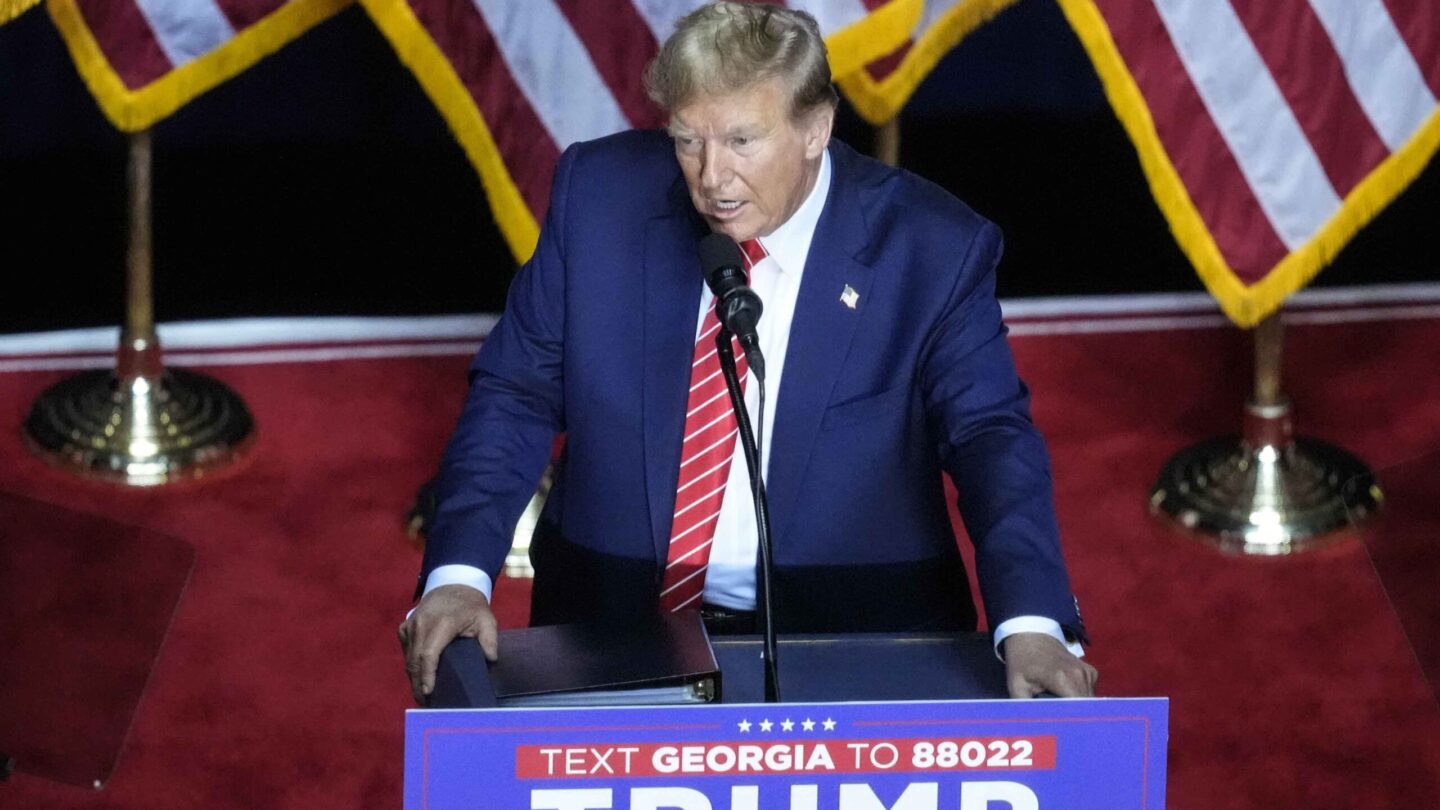The Georgia election interference case against former President Donald Trump could eventually take on more significance after a U.S. Supreme Court ruling further delayed a federal trial. Still, a trial in Georgia will not likely occur before 2025.
In a landmark 6-3 ruling written by Chief Justice John Roberts, the U.S. Supreme Court ruled Monday that presidents are shielded from prosecution for some official acts, but not immune for unofficial acts.
The justices returned Trump’s case to a lower court to sort which, if any, acts in the indictment were official and also subject to immunity.
Ultimately, Fulton Superior Judge Scott McAfee will also have to make this determination for acts involved in the Georgia case, like Trump’s call to Georgia Secretary of State Brad Raffensperger asking to find him votes.
“The Raffensperger phone call is the most damning evidence against Trump, which I also think is the least likely to be shielded under presidential immunity,” says Georgia State University Law Professor Anthony Michael Kreis, saying a candidate making a request to a state official would likely not be seen as an official act subject to immunity.
“Ultimately, Trump will likely have to answer for his alleged crimes in Georgia, whether that is in 2025 or when he leaves the White House if he is elected in November, in 2029.”
Georgia State University Law Professor Anthony Michael Kreis
While McAfee is bound by the U.S. Supreme Court ruling, the eventual analysis by the federal trial court on which acts are official and which are not will only be a useful guide. Many acts involved in the Georgia indictment are not covered in the federal case.
“The ultimate question is whether his actions in Georgia were actions in furtherance of an official duty, or whether Trump was acting as Donald Trump, candidate for president,” Kreis says. “There are very few things alleged by [Fulton County District Attorney] Fani Willis that could be called official acts. I don’t think this disturbs most of the case here. By and large, I think the overwhelming majority of the evidence and claims made in this indictment will withstand scrutiny after this decision.”
Still, hearings to determine that won’t happen for months. An appellate court paused Trump’s Georgia case until it decides whether Willis can continue amid misconduct allegations. The court is not expected to consider that question until October and is not likely to rule until the spring. As a result, that is the earliest McAfee would likely be able to consider the immunity questions.
“It’s certainly possible this case would have been delayed no matter what given the complexity of the decision handed down today, but it’s really hard for us to know,” Kreis says.
The Supreme Court ruling may also affect whether Fulton prosecutors can try Mark Meadows, former White House chief of staff, and Jeffrey Clark, former Justice Department official, alongside Trump. Prosecutors have long said they want to try all defendants together as part of a sweeping racketeering case.
Following the high court’s decision, Trump declared a “big win” on social media. Just delaying the case until after the November election would allow Trump to drop the federal charges if he wins. The Biden campaign slammed the ruling, urging voters not to forget Trump’s actions on Jan. 6.
“He thinks he’s above the law and is willing to do anything to gain and hold onto power for himself,” the campaign wrote in a statement.
If Trump is elected president and stops the federal case, the Georgia case would continue, likely in 2029.
“Ultimately, Trump will likely have to answer for his alleged crimes in Georgia, whether that is in 2025 or when he leaves the White House if he is elected in November, in 2029,” Kreis says.
Trump’s Georgia attorney Steve Sadow has not issued a statement. The Fulton County District Attorney’s Office declined to comment.









